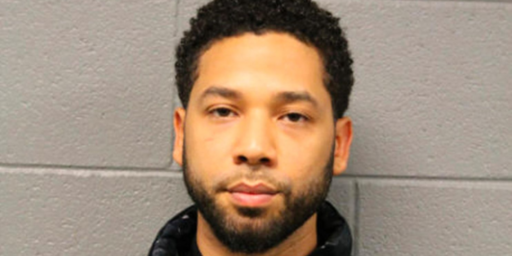The Down Side of the Rule of Law
Two New York City police officers who had been convicted of, among other things, acting as hit men for the mob had their convictions overturned on Friday.
A federal judge tossed out the racketeering convictions of two retired New York City detectives yesterday — including eight murders for the mob — because the statute of limitations had run out, despite citing overwhelming evidence that the men had committed “heinous and violent crimes.”
The ruling by Judge Jack B. Weinstein entirely reversed the conviction of the two detectives, Louis J. Eppolito and Stephen Caracappa, who were found guilty in April of some of the most stunning corruption charges in the city’s history.
[…]
The judge waxed eloquent in acknowledging that his decision might seem strange to some.
“It will undoubtedly appear peculiar to many people that heinous criminals such as the defendants, having been found guilty on overwhelming evidence of the most despicable crimes of violence, should go unwhipped of justice,” he wrote.
“Yet our Constitution, statutes and morality require that we be ruled by the law, not vindictiveness or the advantages of the moment.”
The judge also wrote that even though there was little doubt that Mr. Eppolito and Mr. Caracappa had “kidnapped, murdered, and assisted kidnappers and murderers,” he had no choice but to let them go because the five-year statute of limitations in conspiracy cases had run out.
This is a decision that will no doubt spark a lot of outcry. However, if the article’s reading of the facts is correct, it seems as though the judge really didn’t have any choice. Statutes of limitations are pretty clear–if you don’t bring charges within the correct time period, the person can’t be charged with a crime. Now, you may not agree with those laws, but they are the law, and it’s not the purview of the judge to change it–no matter what the situation.
On the bright side, it seems unlikely that the two officers in question will get away with their crimes. Judging by the article, it appears that there are several other crimes they can be charged with, including murder convictions under state law.
(link via Mark Kleiman)






But there is also protection against being tried twice for the same event. So they may be off scot free.
I agree that this is a case where the law is the law, as opposed to evidentiary exclusion which is a judicial rule promulgated by judges (not passed by legislators). The proper place to complain is the legislature.
Where’s the Boondock Saints when you need ’em?
There is no statute of limitations for murder at, I believe, either the state or federal level. Racketeering, yes; murder, no.